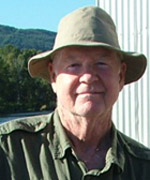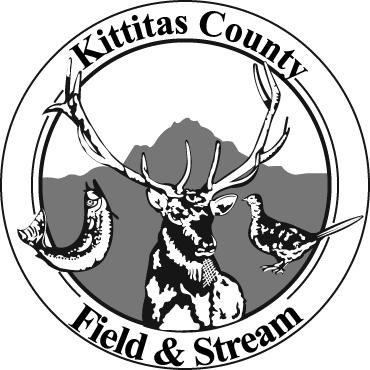HAMS, Wildfire & 100 Mile Runners
An outdoor interest, and a passion to get people onto the ground and outdoors, can cast a broad net.
Last weekend the 19th annual Easton-centered Cascade Crest 100 Mile Endurance Run happened – through smoke, the nearby Jolly Mountain forest fire, and afternoons above 90 degrees. Over the past years, I’ve coordinated the ham radio operators, and Rich White has coordinated the run itself.
This is a big deal. Along with a couple hundred of Rich’s race and aid station volunteers, there were more than forty of us licensed ham radio operators helping track runners and avoid (or handle, if necessary) any emergencies. Over the weekend, hams and other volunteers spend anywhere from six to 36 hours scattered in groups along the 100 miles of ridge and valley trail. We do this because it is fun to play radio communications, and it is an honor to support men and women determined to find their limits.
Normally, the race is a +/-100 mile loop from the Easton Fire Station, reaching up over or along Goat Peak, Stampede Pass, Meadow Mountain, Kachess Lake, Thorp Mountain and Silver Creek. The course passes through some 15 aid stations with aid workers and ham operators to help track runners. This year, because of the Jolly Mountain fire, access to almost half of the remote aid stations was impossible. Thus, Plan B – send the runners out halfway and bring them back along the same trail.
This meant that the aid station crews and hams normally along the second half of the course would be “folded back” to man the earlier stations which now became later stations. Our aid station crew (Captain Terry and wife Dolores, Reed and wife Sue, Jason and Scott, with Diane and me handling the radios) has worked Mineral Creek (mile 74) for years. With the folding, our crew would become Tacoma Pass #2 (mile 80). Once the runners had passed the first Tacoma Pass station – sometime around 4 p.m. Saturday – we set up the second station for their middle-of-the-night-and-next-morning return trip. A bit disorienting for most aid crews, yes, but manageable.
The overnight Tacoma Pass station (that was us) was a zoo. Runners began coming back through a bit after midnight and continued until the last couple trickled in 13 hours later. This meant that many runners’ support teams were showing up at wee hours. Wild celebrations occurred as certain runners came through our station – joyful, yes, but challenging with keeping track of runners and aid station workers trying to get a bit of rest during the long night. Somehow, our experienced aid station team managed, and we lost no one in the various shuffles.
As you might imagine, attending an aid station and radio network over 20 some hours, awaiting the arrival of one or another of the hundred and a half runners on the course, leaves moments for cool experiences. Turns out that our aid station was located on the Pacific Crest Trail as it crossed Tacoma Pass road. Therein lies the proof of what my father – The Old Man – often said about Central Washington: “Sit here long enough, boy, and the world will come to call.”
At odd moments, at least 10 hikers in full backpacking gear passed through our station – all but one headed north. Imagine their surprise as they stepped out of the heavily timbered trail and into a festive set of tents and shelters with chairs, food and drink, smiling faces, and a big sheet birthday cake for Reed and August birthdays.
A young American couple had been on the trail since late spring. A middle-aged couple – husband from El Salvador and American wife – had begun hiking north in Mexico in March. A thirty-something Finn had come to the US to hike the Cascade Crest and had been at it for two months. A similar aged Japanese man also had a couple months on the trail. A middle-aged couple from Austria had started at the Mexico border in early May, and a young American guy was 200 miles into his 500 mile walk. Some opted to find a camping spot nearby and joined us for an evening and morning bite, and others moved on up the trail after a snack or drink and a brief conversation about their travels, hopes and intentions.
On Sunday morning an older man hiked out of the woods, noted that he’d been out for weeks, then smiled and said, “No thanks!” to offers of food and cake. I was recording a runner’s arrival, and glanced up to see him pausing at the other side of the Tacoma Pass road, foot raised to step onto the northbound uphill trail and back into the woods. One minute later, he was sitting in a chair, smiling broadly as he lifted a fork full of birthday cake.
There is great value in supporting men and women determined to go full out – determined to get past a personal block, to make some new connection with life – and maybe with the earth itself. Each of us, at some point, breaks through something that resists us, to find and explore the limitations of our bodies and minds. So much of this happens outdoors, on the ground.
164 hopefuls signed up to run the 100 miles. Something just under 120 finished the race, with the others dropping out at various stations along the course.
Fire could be seen from a couple of the higher spots along the trail, and smoke obliterated everything at moments. Temperatures were well above those experienced during past Cascade Crest 100 mile runs, reaching well over 90 degrees Sunday afternoon through the last few miles back to the Easton Fire Station. We experienced no emergencies during the race, and no one collapsed or got lost. It was another great and safe outdoor weekend.
Thank you hams and volunteers.







